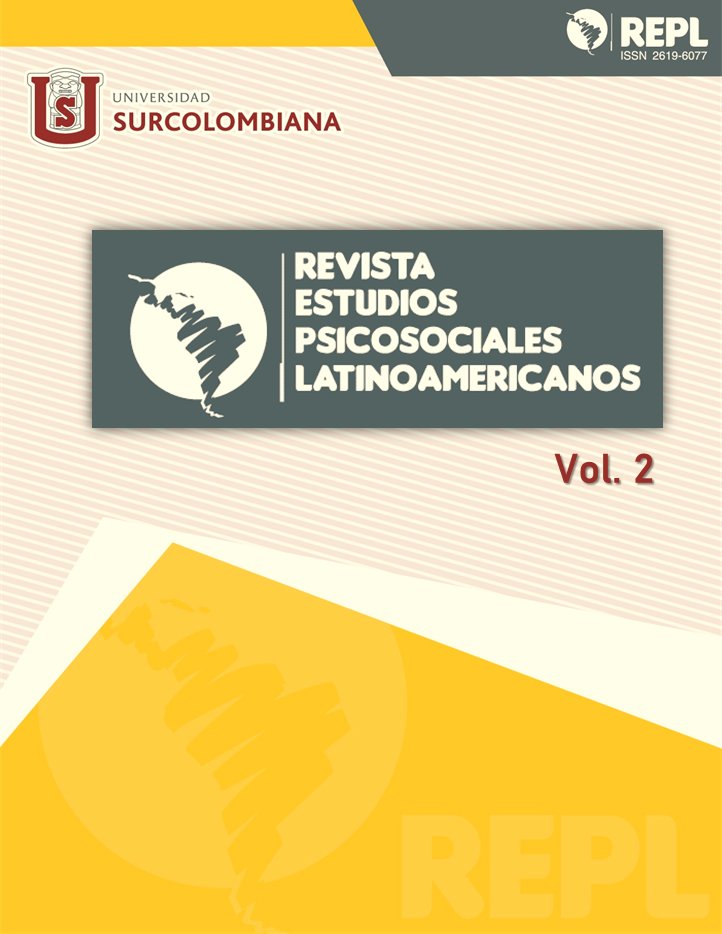Women: their emergence from political subjectivity in the processes of social transformation
##plugins.themes.bootstrap3.article.main##
This article analyzes the emergence and transformation of the political subjectivity of women working in Fundación Sembrando Futuro con Afecto (FUSEF), of the city of Neiva, (Colombia) in relation to the processes of construction of political subjectivity in women of community. Its narratives from the autoethnography and conversational interviews derived categories of analysis such as the historical awareness that is recovered in each story and that gave account of the moments of beginning of a community gestated from freedom but that was overshadowed and invisible in the institutionalized, in hegemonic discourses that mainstream the body through the knowledge-power of psychic mechanisms. However, the resistance provokes new configurations and that is how political action begins to make visible the encounter with the other in its vulnerability to the point that it questions and moves to take charge and account for itself. Which proposes a review of ethics for life and shared support.
Downloads
##plugins.themes.bootstrap3.article.details##
Acosta, L. (2016). Poder y subjetividad en Michel Foucault: traslaciones, modificaciones, ambivalencias. Oxímora: revista internacional de ética y política, 8, 20-35. Recuperado de http://revistes.ub.edu/index.php/oximora/article/view/15462
Aguilera, A. (2014), Subjetividades políticas en movimiento(s): la defensa de la universidad pública en Colombia y México. Bogotá, Colombia: Magisterio Editorial. http://editorial.pedagogica.edu.co/docs/files/libro%20subjetividades.pdf
Barragán, G. (2016). Cartografía social pedagógica: entre teoría y metodología. Revista Colombiana de Educación, (70), 247-285. https://doi.org/10.17227/01203916.70rce247.285
Butler, J. (1997). Mecanismos psíquicos del poder. Teorías sobre sujeción, Madrid, España.
Butler, J. (2016). Los sentidos del sujeto. Barcelona, España: Herder Editorial.
Butler, J. (2017). Cuerpos aliados y lucha política. Hacia una teoría performativa de la asamblea. Barcelona, España: Paidós. https://doi.org/10.5209/ASEM.61673
Canales, M. (2006), Metodologías de investigación social. Santiago de Chile, Chile: LOM ediciones.
Conforti, M. (2017). Discursos, instituciones y saber en el pensamiento de Michel Foucault. Universitas Philosophica, 34(69), 105-119. https://doi.org/10.11144/Javeriana.uph34-69.disf
Foucault, M. (1979). Microfísica del Poder. Madrid, España: Edición y traducción de Julia Varela y Fernando Álvarez.
Foucault, M. (1994), Vigilar y castigar. Madrid, España: Editorial Siglo XXI.
Guardia, S. (2015). Las mujeres como sujetos históricos: un derecho conquistado. Utopía y Praxis Latinoamericana, 20(68), 41-49. Recuperado de https://www.redalyc.org/articulo.oa?id=27937090004
Guerrero, J., (2014). El valor de la autoetnografía como fuente para la investigación social: del método a la narrativa. AZARBE, Revista internacional de trabajo social y bienestar, (3), 237-242. Recuperado de https://revistas.um.es/azarbe/article/view/198691
Lévinas, E., (2012). Totalidad e infinito. Segunda Edición: Editorial Sígueme.
Mèlich, J. (2014). La condición vulnerable (Una lectura de Emmanuel Lévinas, Judith Butler y Adriana Cavarero). Ars Brevis. (20), pp.313-331.
Moreno, Y. (2017). Judith Butler y la construcción del sujeto en términos performativos. THÉMATA, Revista de Filosofía. (56), pp.307-315.
Ochman, M. (2016). Políticas sociales y empoderamiento de las mujeres. Una promesa incumplida. Estudios Políticos. (48), pp.32-51.
Piedrahita, C., Díaz, A., y Vommaro, P. (2013), Acercamiento metodológico a las subjetivaciones políticas: debates latinoamericanos, Bogotá, Colombia, Universidad Nacional Francisco José de Caldas.
Pineda, J., (2014). Geopoética de la Guerra: he oído música en el estruendo del combate y he hallado paz en donde las bombas escupían fuego. Centro de Estudios avanzados en Niñez y juventud alianza de la Universidad de Manizales y el CINDE. Colombia.
Prieto, (2018). Irrupciones Feministas. Problemáticas epistemológicas y políticas. Revista andaluza de antropología Número 14: ISSN 2174-6796.
Saldarriaga, Q. (2015). Subjetividad política y narrativas. Los círculos de mujeres: una pedagogía insumisa (tesis de maestría) Universidad de Antioquia, Medellín, Colombia.
Torres, A. (2006). Subjetividad y sujeto: Perspectivas para abordar lo social y lo educativo. Revista Colombiana de Educación. (50), pp. 86-103.
Velasco, A (2013). El sujeto político y la transformación social en Judith Butler y Seyla Benhabib. BAJO PALABRA. Revista de Filosofía. II Época, Nº 6, (2013):275-282 Universidad Complutense de Madrid.
Zemelman, H., (1998), Subjetividad: umbrales del pensamiento social. Barcelona, España, Anthropos.




